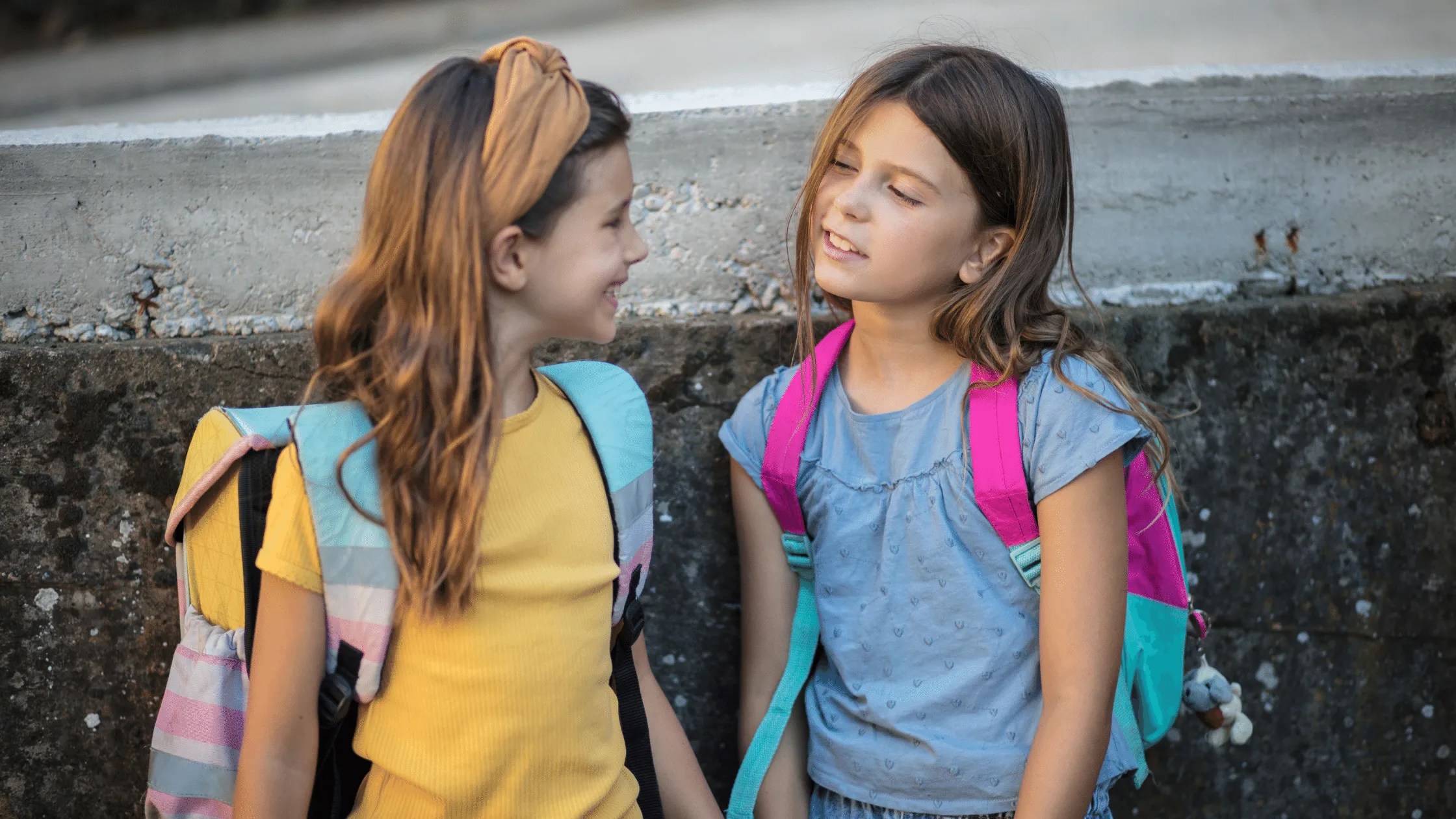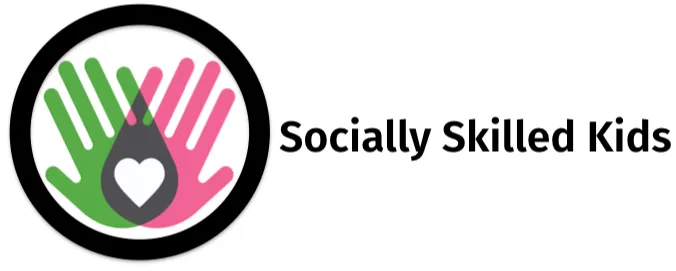How to Teach Students to Ask Questions
Jul 16, 2020
Have you ever watched a group of your special education students having a “conversation?” It can be very awkward social interaction, to say the least.
To be fair, I see similar behaviors and lack of social awareness when watching regular education students too. The students are talking…but are they having a true conversation?
A conversation is defined as a back and forth verbal exchange between two or more individuals. Of course there is sooooooo much more to pragmatic language skills.
Based on my personal experiences, when I watch my students{who haven’t used my strategies for social pragmatics) engaging in a conversation… what I typically see when taking a closer look is one child talking, then another child talking, then another…usually overlapping each other, rarely on the same topic, and sometimes with little to no regard for each other.
One of the skills my students and I work on the most is responding to others in social settings. This way, a more true conversation with social pragmatic skills can occur.

Four Ways To Respond To Others, In A Conversation
When thinking of social pragmatics, there are four appropriate ways to respond to someone who is talking to you.
1. Ask a Question
2. Make a Comment
3. Make a Connection
4. Use Body Language or Facial Expressions
To respond effectively in a conversation, one must know how to take turns during a conversation. Grab a fun freebie to help you practice conversational turn taking, Here.
Today’s post is focusing on #1, Asking Questions.
Many of my students struggle with asking questions during a conversation. Why? For a few reasons. One, they may not have the necessary perspective taking skills to understand the value and importance of asking questions to their conversational partner. This is especially true if the topic is not of interest to them. Another reason may be because the student is so preoccupied thinking about their own topic, that they cannot focus on important social rules in order to really hear what the speaker is saying. Additionally, some students struggle with social pragmatics because they truly do not know how to ask a good question.
The Function Of Asking Questions During A Conversation
The function of asking questions during a conversation is to gain information, be polite and show interest, or to keep the conversation going to show good social communication skills.
Practicing a child's ability to ask questions, under a variety of circumstances and given many different topics, helps students to be able to ask more questions naturally and show a better social understanding when they are having conversations with others.
There are so many fun ways to practice asking questions with your students.
What Are The Question Words We Use In A Conversation?
There are 10 question words {or groups of words} that students should practice to improve their conversations. Understanding what these question words/starters are and what their purpose is, can help students to ask questions that are on topic and make sense.
Lets look at these social cues in more detail.
1. What: Asking a what question will help you gain information to be able to label something. For example: “What is that?” {“It’s a dog”}, or “What do you want to dinner?” {“spaghetti”}.
2. Who: Asking a who question will help you to gain information about labeling a person. For example: “Who is your teacher?” {“Mr. Smith}
3. Where: Asking a where question will help you to gain information about the location of an object, person or activity. For example: “Where are my socks?”
4. When: Asking a when question will help you to gain information about the measurement of time. For example: “When are we going to the park?”
5. Why: Asking a why question will help you to gain information about the reasoning for something that has occurred or is occurring. For example: “Why did we have a short recess?”
6. Which: Asking a which question will help you to gain information about 2 or more items. For example: “Which is your favorite, vanilla or chocolate?”
7. How: Asking a how question will help you to gain information about a procedure, process or event. For example: “How do you write in cursive?” It can also give you information about measurement of time or distance. For example: “How long do we have to stay here?”
8. Will/Would/Could/Should: Asking a will/would/could/should question will help you to gain information about the ability, willingness or likelihood of someone or something. For example: “Will that vase break if you drop it?” “Would you mind moving over a bit?” “Could you please pass me the salt?” “Should I wear a helmet?”
9. Do/Did/Does: Asking a do/did/does question will help you to gain information about preferences, occurrences, and general information related to past or present events. For example: “Do you like soccer?” “Did she go over to your house?” “Does he know how to get home?”
10. Can: Asking a can question will help you to gain information or knowledge about a person or an object. For example: “Can elephants sleep standing up?”
BONUS Question Word…
“May…?”
Many children {adults too!} use the word can…, when they should use the word may…
When asking a question that is seeking permission, use a may question. For example: “May I have a bowl of ice cream?” “May I stay up a little later?”
When asking a question that is seeking information about the qualities or abilities of an object or person, use a can question. For example: “Can you jump over that puddle?” “Can a marker dry up overnight?”
Have fun encouraging your kiddos to ask questions to help build social pragmatics!
Need some more ideas for how to help your students ask questions? Sign up below to join The Teacher's Lounge and get weekly social skills freebies!
You'll get this free resource right away. It's one of my Tips & Tricks Newsletters with conversation tips and a fun conversation game to play with your students to make a significant impact.
Grab These Conversation Skills Resources Here!

Thanks So Much and Happy Teaching!
Cindy ~Socially Skilled Kids
Would you like to receive specially designed, creative and interactive FREE teaching resources?
Join us in the Teacher’s Lounge!

